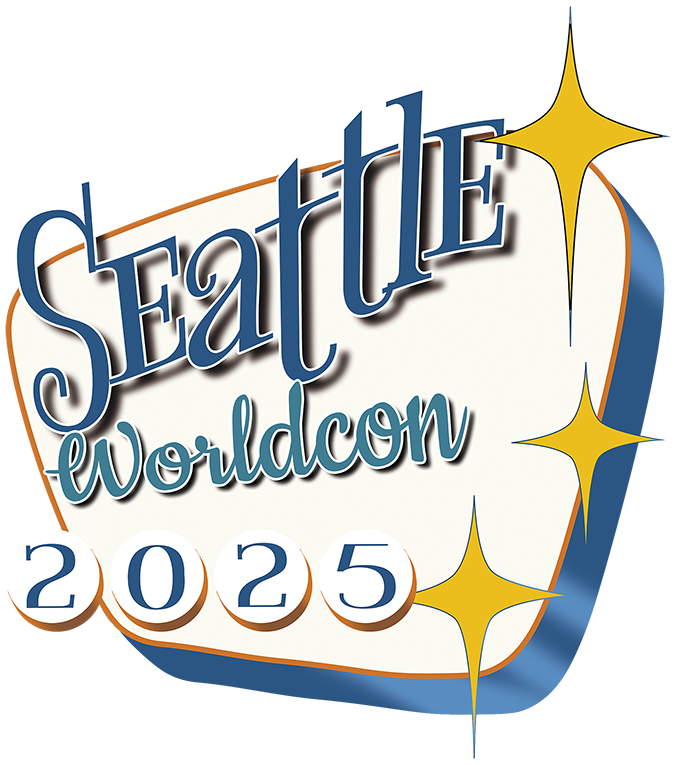Hello, fellow travelers!
We are still shuffling ever slowly toward the close of Hugo Awards voting at the end of July, so I hope you’ve all been having fun digging into the finalist packet—including reading the contenders in the 2025 Special Hugo Award for Best Poem category at this year’s ceremony. Even I have been absolutely delighted to rediscover the poems that have made it to the ballot and, in one case in particular, discovering a piece for the very first time. This entry has been of particular interest to me because its presence inadvertently reveals one of the core historical touchstones of speculative poetry and reifies the core strength of one of the greatest forms of poetry from antiquity into the modern day.
I am talking about Oliver K. Langmead’s Calypso, the sole finalist that is a novel in verse, in fact a space opera epic following the recently cryo-awakened Rochelle as she discovers the community of the eponymous generation ship she stands aboard and the evolving bio- and techno-politics that govern it as its inhabitants seek their new future in the cosmos:
My son slipped his needle into thousands;
Thousands that gave him consent to do so,
Legally sanctioned by his government.
Should I consider those killings murders?
I dissect Catherine’s grapes one by one,
Digging the seeds from the red depths of them.
I know they are juicy and delicious,
But I am unable to enjoy them.
This celebration is too loud for me,
Revellers revelling obnoxiously,
Spilling their pink wines over each other,
Teeth gritty with the seeds of their dull fruits.
I am still making my way through a more thorough re-reading of this, but just at first glance, this addition to the ballot gives us a wonderful opportunity to discuss the epic poem as a kind of precursor not only to the modern concept of the verse novel, but also, in a more deeply conceptual sense, the predecessor of speculative poetry as a clear genre practice overall. As I and many of the other poets who have conversed with you all here on the blog have already said, the speculative appears in poetry as early as we can possibly imagine—but we have not fully discussed how this fact is true even going all the way back to ancient Mesopotamia. From the Odyssey to the Kalevala, from Gilgamesh to Beowulf, some of the very first examples of the epic poem have been uniquely speculative or have traded in imagery we would now reserve for the speculative, even if they were otherwise considered matters of faith back then. In fact, I am inclined to believe that there is some meaning in the fact that Langmead’s epic, itself a story about a journey to a new home aboard a world of its own and its internal biopolitics, is named after an early character in the Odyssey, a nymph who has Odysseus trapped on her island home, offering him immortality in exchange for his hand in marriage.
The epic poem as a form is evidence that metre and lyricism has been so core to the act of storytelling that our very first stories take its shape in long verse form. It reminds us of some of the things that can often get lost in the academic conversation of poetry. This was once one of the core ways in which we consumed stories, and this shows that verse is therefore no more an inherent challenge than prose. It seemed to have this specifically valuable historical capacity for capturing the often unreal beauty of the places, people, and realities that lie just beyond our present world, and epic poetry gives us the language and the lyrical flow to capture both that awesome wonder and the heightened emotional and political stakes of its characters. Having more books follow in that pattern and be rewarded only continues to value those elements—and applying it to a modern science fiction space story serves as an example of how vast subgenres of speculative worldbuilding lend themselves well to the very same perks of the form as seen in works of the past.
As I mentioned, I am still taking my time with this—and with the other finalists on the ballot—so I hope that you’re also being patient in your own reading, of the poems and all the other wonderful Hugo Award finalists. But if I can offer any homework, it would be this:
Get your hands on some other epic poems! Put your reading of Calypso alongside discovering another classical epic, and take note of what you discover in the space between them. Don’t try to read them to necessarily find thematic comparisons (although there may, in fact, be many fascinating links if you do look for them), but use it as a moment to find the ways in which Calypso formally resembles the epic poem. What about the metre of its lines, the length of its stanzas or sections, or the separations of voice between its characters seem to hearken back to the classics? How do they differ in dramatic and engaging ways—in particular, how does the way Langmead further distinguish voice through the poem’s visual layout tell us more not only about these characters and the world of this epic but also about visual design as an element of poetic storytelling?
Until then, may tomorrow and your good days always rhyme!
Brandon O’Brien is a writer, performance poet, teaching artist, and tabletop game designer from Trinidad and Tobago. His work has been shortlisted for the 2014 and 2015 Small Axe Literary Competitions and the 2020 Ignyte Award for best in speculative poetry, and has been published in many genre magazines and collections. He is the former poetry editor of FIYAH. His debut poetry collection, Can You Sign My Tentacle?, available from Interstellar Flight Press, is the winner of the 2022 Elgin Award. He is the poet laureate for Seattle Worldcon 2025, and the first poet laureate of any Worldcon.

